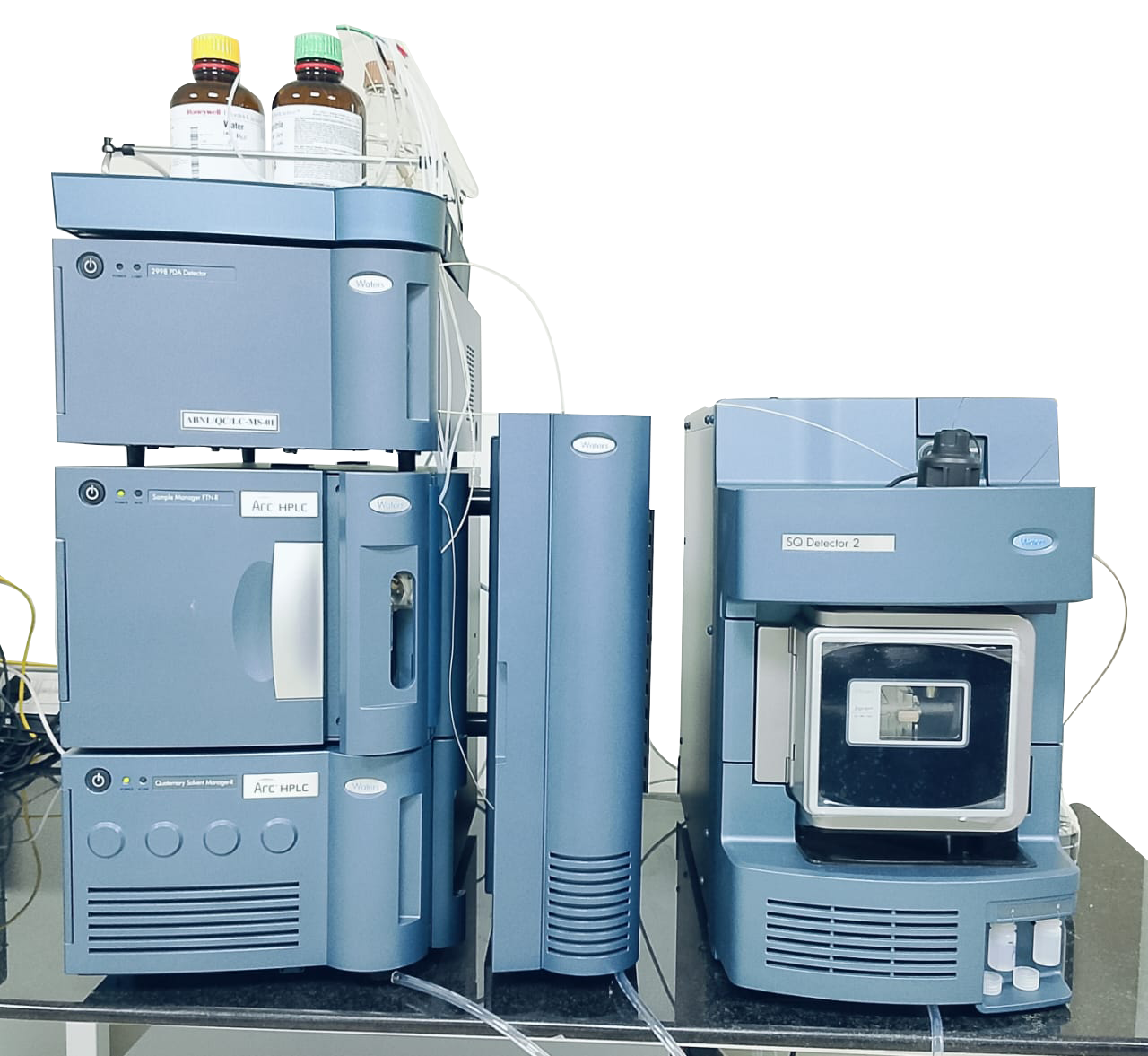Mass Spectroscopy
Mass spectrometry is a powerful analytical technique used to quantify
known materials, to identify unknown compounds within a sample, and to
elucidate the structure and chemical properties of different molecules.
The complete process involves the conversion of the sample into
gaseous ions, with or without fragmentation, which are then
characterized by their mass to charge ratios (m/z) and relative abundances.
This technique basically studies the effect of ionizing
energy on molecules. It depends upon chemical reactions in the gas phase
in which sample molecules are consumed during the
formation of ionic and neutral species.
Mass spectrometry has two probes ESI (Electrospray ionisation) and
APCI (Atmospheric pressure chemical ionisation) for polar and non-polar compounds
Mass spectrum is a plot of relative abundance against the ratio of mass/charge (m/z)
